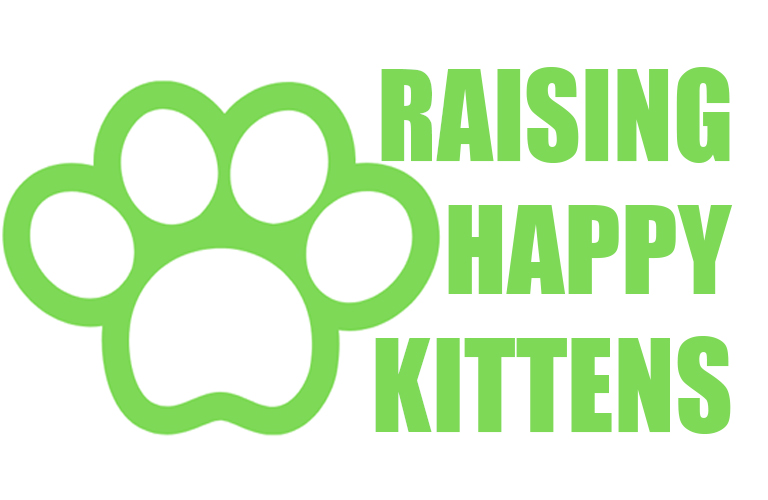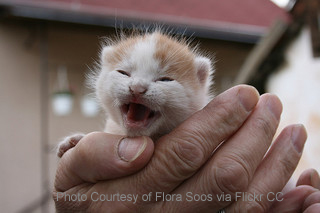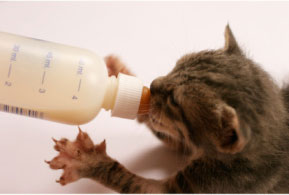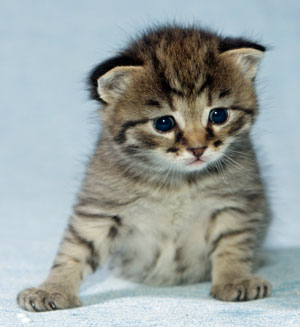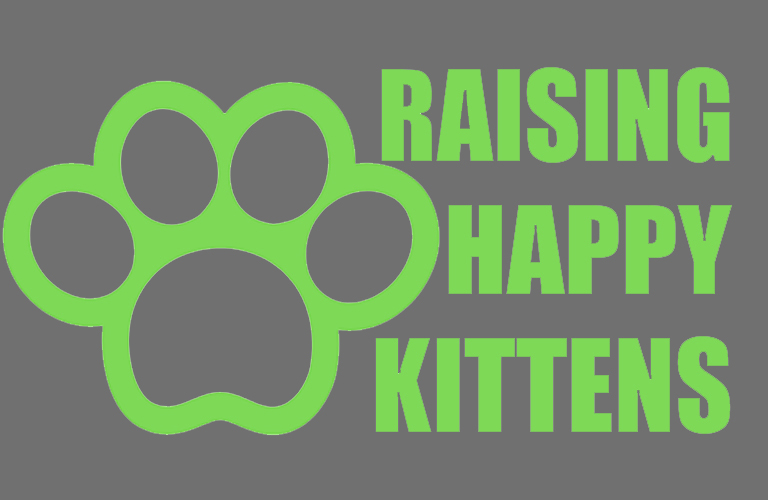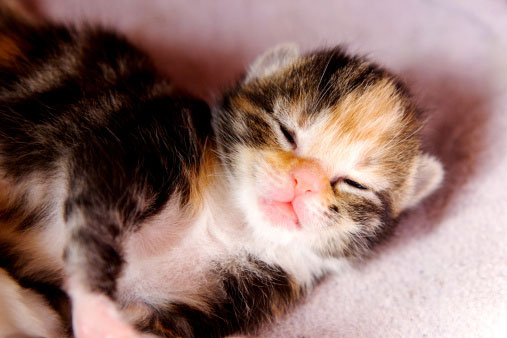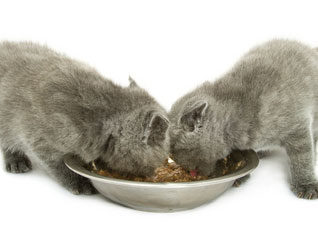Have you ever seen what a newborn kitten looks like? Well, the feline gestation period has finally lead up to the moment you have been waiting for–the birth of all those cute kittens!
Well, maybe “cute” is an exaggeration at this stage–they will be slimy and resemble something more like a rodent than a cat–but in a week or so, yay! Cute kittens!
Hopefully up until this time, you have been providing mama with the love, care, and extra nutrition she needs while she has been expecting.
Since she is very close to delivery and birthing her newborn kittens, you should also have made sure she has a safe and private place with a nest box to give birth.
When the Kittens are Born
As each is newborn kitten arrives, Mom will know what to do. She will open up (and eat) the amniotic sac for each one, and will lick and clean each little one to stimulate breathing.
She will do this in succession for each newborn kitten, and will bite and sever the umbilical cords for each as well.
The queen will also eat the placenta which, contrary to popular belief, does not provide any additional nourishment–it is just to keep her nest clean.
If difficulties arise during the newborn kitten birthing process, see newborn care.
Early Experiences of a Newborn Kitten
Newborn kittens are arrive completely blind and mostly deaf.
They will navigate their surroundings through touch and smell, and will be able to feel the vibration from their mother’s purring and feel the direction of her location through her body heat.
For the first 72 hours, nursing for the newborn kitten is vital.
Their mother provides a nourishing liquid called colostrum which provides them with all the antibodies they need until they are old enough for vaccinations.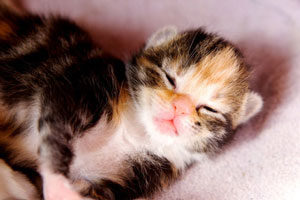
Until they are three weeks old, a newborn kitten needs to be stimulated to urinate and defecate. The queen (mother cat) will lick their bellies and urinal and anal area to prompt them to eliminate their waste.
Again, in the interest of keeping her nest clean, she will eat it.
In the wild, this is done so that predators cannot smell their presence. This is also the reason why cats bury their waste instinctively.
Have you had a grown cat that likes to knead on your chest or on its favorite fleecy blanket? This is learned behavior from these very early days.
A newborn kitten will knead on either side of his mother’s nipple to stimulate the flow of milk. This is one of very few behaviors they are capable of as newborns.
Another behavior a newborn kitten will exhibit is “rooting,” which is how they scoot their bodies towards the heat of their mother’s body.
You may notice that they tend to move in a circular motion–that is to ensure that they do not stray too far from food and warmth.
Purring is something that a newborn kitten will experience in the first days of life. Although they are still too young to purr and cannot hear it, they can feel the vibration from their mother.
When she returns to the nest after a “break,” she will purr to them to let them know that all is well. Purring then is associated with positive, happy feelings beginning from the first few days of life.
As a newborn kitten caregiver, your responsibility at this early stage is just to take care of mama.
Keep an eye on them to make sure each newborn kitten is getting the chance to nurse and is gaining weight each day, but otherwise mom knows what to do.
If one of the kittens is being neglected or a litter of newborns is abandoned or orphaned, unfortunately the mortality rate can be high.
Refer to this page on hand-feeding to find out how to care for motherless kittens and help increase their chances of survival.
